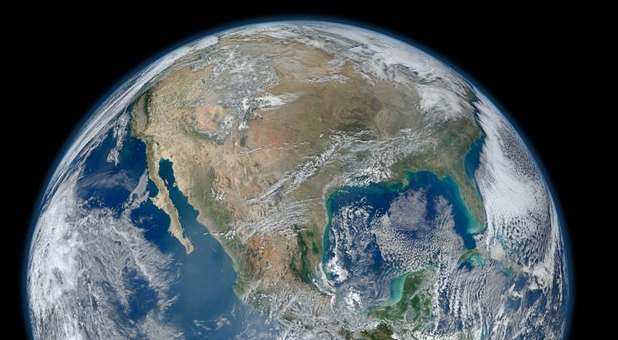Hopelessness is the dominating theme of the present day and age. Political leaders are quickly blamed for problems in our society, and human civilization as a whole is blamed for the destruction of the environment.
But for those who believe in Jesus Christ, hope for the future is based on the ever-faithful love of God and not primarily on changes in political power, socio-economic situations or the environment. That is not say that such things are unimportant or ought to be deprioritized. But God is still in control and, what’s more, has given us the ability and ingenuity to find solutions to many of the problems we face.
My hope in God has set me free from the doomsday mentality; I am sure that God is mighty enough to save His people, no matter how desperate their circumstances.
But I am sure, too, that although God can act in what we’d call supernatural ways, His acts of rescue often come through the agency of human beings created with immense potential to solve the critical problems that plague our environment. That motivates me not merely to wait and hope for others to suggest solutions, but to focus my own attention on solutions for the environmental problems at hand.
Having this perspective has also helped me appreciate the beauty of the environment. To my surprise, I have great hope for the future of the plants and animals in our world. There are genuine signs that environmental conditions are often not as bad as they are portrayed to be.
I made my first trip to the jungles of India in 2002 and found that, thanks to stricter laws and people’s increasing love for the rule of law, tiger populations were already making a comeback after a century-long decline. I was even more encouraged in the next seven years as I made at least 50 more trips to the jungle to observe the flora and fauna, and during my studies in the U.K. where I took my Master’s degree in environmental science.
Through the use of Geographic Information System technologies, population studies, ecological models and other research inputs about ecological changes, I was able to understand how the forests across the world have been changing and analyze the state of global ecology. To my surprise, I found no grave threats to forests and wildlife from natural and climatic causes. Rather, I discovered that the major challenges to wildlife and the global environment are from illegal hunting and illegal deforestation.
Since completing my studies, I’ve gone on to apply my knowledge and skill set in the conservation of birds, reptiles, mammals, and marine life across three continents and four countries over a period of eight years. In all the different ecosystems and economies that I have studied, the primary cause of environmental damage appears to stem from illegal practices and bad governance. Despite frequent claims to the contrary, I found hardly any evidence that climate change has caused the degradation of the environment or wildlife populations.
My most recent phase of work involved helping governments in South Asia implement environmental policies. None of the government agencies that I worked with were in a panic about the environment or climate. This was not because of apathy, but because of the reality that the environment to is more stable than the picture painted by the mainstream media over the past two decades.
I started my environmental journey with my hope in God’s faithfulness muted somewhat by scientific pessimism. But today, I have hope for the future health of our environment on a scientific basis too. And I want you and your children to have a similar hope.
God has provided us with resources to meet increased demands, sometimes simply through the gain in knowledge and wisdom about how we can tap resources more efficiently. God has also blessed individuals and academia with the ability to find solutions to difficult problems and to repair the damage from illegal activities that have caused so much distress.
Never before in earth’s history has our environment been as closely studied as it is today. Advances in many fields, from microbiology to astrophysics, have enabled us to understand biological and physiological processes at macroscopic and microscopic levels.
We do need to be well-informed on the state of our environment. It’s not nearly as dire as we might gather from the media hype and the extravagant false claims often made about the future.
To be sure, no one, and not even the best computer models, can predict what challenges we’ll have to face in the future. But this world still belongs to God. And what He has already done for us in Christ, as well as the other evidences of His ever-faithful love for us, gives us faith to trust in His provision and persist in finding ways to solve the problems we face.
Vijay Jayaraj (M.Sc., Environmental Science, University of East Anglia, England), research associate for developing countries for the Cornwall Alliance for the Stewardship of Creation, lives in Bangalore, India.
See an error in this article?
To contact us or to submit an article






















